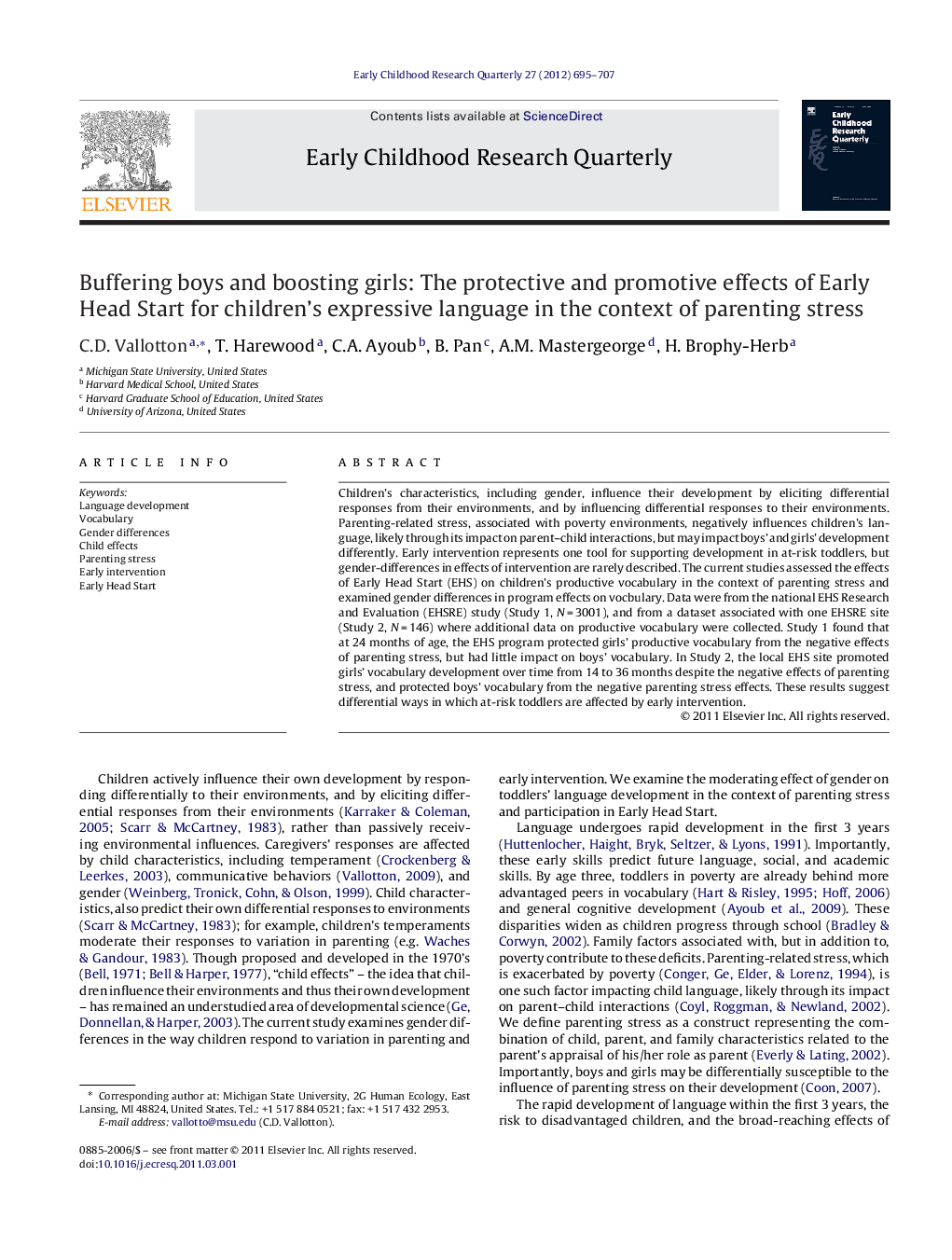| Article ID | Journal | Published Year | Pages | File Type |
|---|---|---|---|---|
| 354077 | Early Childhood Research Quarterly | 2012 | 13 Pages |
Children's characteristics, including gender, influence their development by eliciting differential responses from their environments, and by influencing differential responses to their environments. Parenting-related stress, associated with poverty environments, negatively influences children's language, likely through its impact on parent–child interactions, but may impact boys’ and girls’ development differently. Early intervention represents one tool for supporting development in at-risk toddlers, but gender-differences in effects of intervention are rarely described. The current studies assessed the effects of Early Head Start (EHS) on children's productive vocabulary in the context of parenting stress and examined gender differences in program effects on vocbulary. Data were from the national EHS Research and Evaluation (EHSRE) study (Study 1, N = 3001), and from a dataset associated with one EHSRE site (Study 2, N = 146) where additional data on productive vocabulary were collected. Study 1 found that at 24 months of age, the EHS program protected girls’ productive vocabulary from the negative effects of parenting stress, but had little impact on boys’ vocabulary. In Study 2, the local EHS site promoted girls’ vocabulary development over time from 14 to 36 months despite the negative effects of parenting stress, and protected boys’ vocabulary from the negative parenting stress effects. These results suggest differential ways in which at-risk toddlers are affected by early intervention.
► National EHS protects girls’ parent-reported vocabulary from parenting-stress. ► On average, the national EHS program did not affect boys’ language at 2 years old. ► Girls are more sensitive to parenting-stress in context of mom–child interaction. ► Early Head Start buffers boys’ vocabulary in mom–child interaction more than girls’. ► High quality early intervention boosts girls’ vocabulary despite parenting-stress. ► High quality early intervention buffers boys’ vocabulary from parenting stress.
